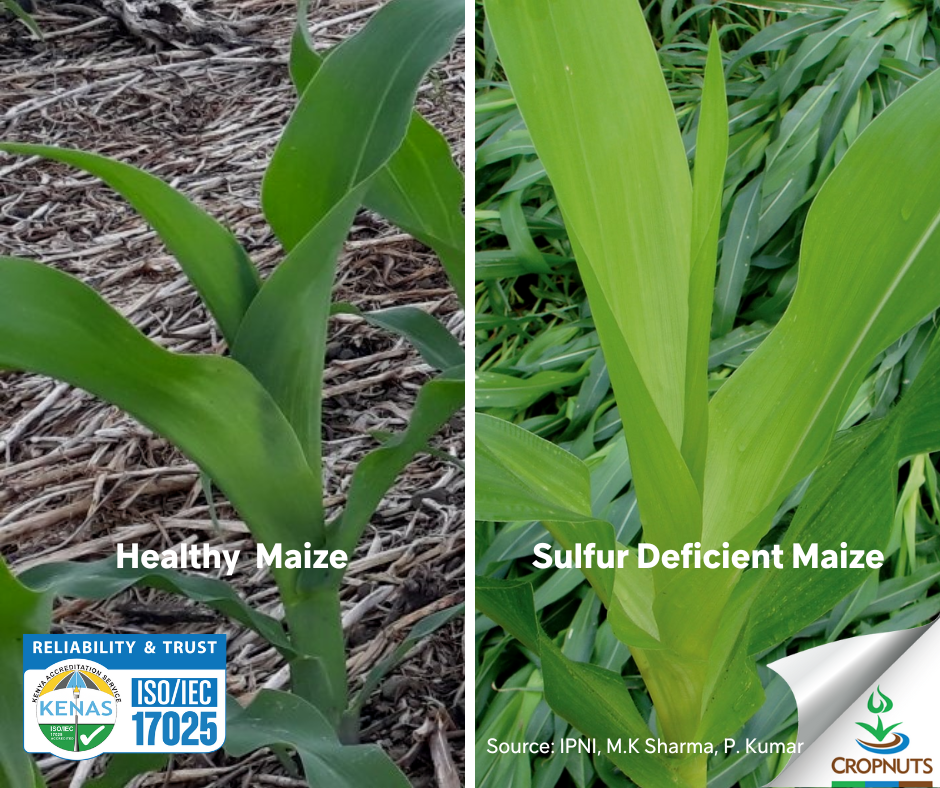
Sulfur (S) is a vital nutrient that plays a crucial role in plant growth and development. A secondary macronutrient, sulfur is indispensable for various physiological processes in plants. Let’s explore the importance of sulfur in plant nutrition and how it contributes to robust crop growth:
Sulfur is a key component of amino acids, proteins, and enzymes, which are essential for plant metabolism and growth. It plays a vital role in chlorophyll synthesis, aiding in photosynthesis and energy production. Sulfur also enhances the efficiency of other nutrients, particularly nitrogen, contributing to overall plant health and productivity.
Sulfur availability in soils depends on factors like soil pH, organic matter content, and microbial activity. In low pH or highly acidic soils, sulfur availability can be limited. Organic matter decomposition and microbial activity release sulfur in a form that plants can uptake, making these factors crucial for sulfur availability.

Soil organic matter serves as a reservoir for sulfur, releasing it slowly as organic materials decompose. This helps maintain a steady supply of sulfur to plants. Practices such as crop rotation, cover cropping, and incorporating organic amendments like compost or manure can increase soil organic matter, thereby enhancing sulfur availability and overall soil health.
Sulfur deficiency in plants can lead to yellowing of younger leaves (chlorosis), as opposed to nitrogen deficiency, which affects older leaves first. Stunted growth, delayed maturity, and reduced yield are common symptoms of sulfur deficiency. Early detection and correction are crucial to prevent significant yield losses and ensure healthy crop development.
To address sulfur deficiencies, farmers and agronomists can apply sulfur-containing fertilizers such as ammonium sulfate, gypsum (calcium sulfate), or elemental sulfur. Soil tests are essential to determine the appropriate application rates and ensure balanced nutrient management. Incorporating these fertilizers based on soil test results can enhance sulfur levels and support optimal plant growth.
In conclusion, understanding the role of sulfur in plant nutrition and managing its availability in soils are key to achieving healthy and productive crops. Regular soil testing, proper soil management, and targeted fertilization can help farmers and agronomists unlock the full potential of sulfur for higher yields and sustainable agriculture. For personalized guidance on optimizing sulfur nutrient use and soil testing, feel free to contact our experts at support@cropnuts.com.
Grow more with less
#savesoil #soilhealth #soilscience #plantnutrition #sulfur
Order our services and get to know how to improve your soil for better yeilds.